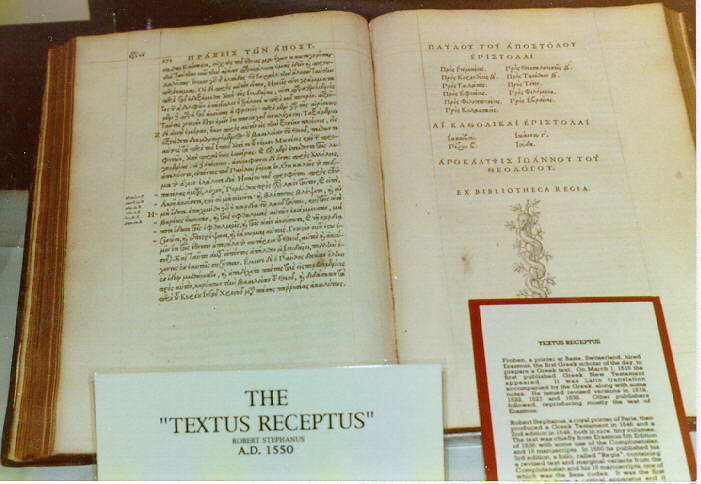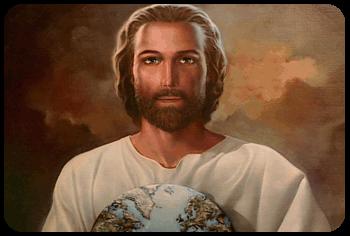|
MODERN GREEK.
"I.--GEOGRAPHICAL EXTENT AND STATISTICS.
MODERN Greek, or Romaic, is the vernacular language
of about 2,000,000 descendants of the ancient
Greeks, dispersed throughout the
Turkish empire. The modern
kingdom of Greece, the original
seat
of the language, is bounded, as of old, on three sides by....
II.--CHARACTERISTICS OF THE LANGUAGE.
[...]
III.--VERSIONS OF THE SCRIPTURES IN THIS LANGUAGE.
Three versions of the New Testament exist in Modern Greek.
Of these, the earliest was printed
at Geneva, in 1638, in parallel columns with the inspired text: it was
executed by Maximus Calliergi
(or Callipoli, as he is sometimes called), at the solicitation of Haga, the
ambassador of the then United
Provinces at Constantinople. The translation is remarkable for its
close and literal adherence to the
Greek original text.
The expense of this work was borne by the United Provinces.
It is preceded by two prefaces,
the one by the translator, and the other by Cyrillus Lucaris, patriarch of
Constantinople, who, having
spent his youth at Geneva, had imbibed the principles of Calvinism: both
prefaces treat on the
necessity of presenting the Scriptures in a language intelligible to the
people. This version was
reprinted, with corrections, in 1703, in London, by the Society for
Propagating the Gospel in Foreign
Parts; and another edition was issued by the same Society in 1705. A
reprint of this version, in
12mo., was published at Halle, in 1710, at the expense of Sophia Louisa,
queen of Prussia.
From this edition, the British and Foreign Bible Society published an
impression, under the
superintendence of the Rev. J. F. Usko, in 1808, with the
Ancient and Modern Greek in parallel
columns. This edition was so favourably received, that, in 1812, it
was found necessary to undertake
another edition, for the supply of the urgent demands in the Levant, the
isles of the Archipelago, and
certain other Greek stations. A strict and thorough revision of the
text being deemed requisite, the
Rev. C. Williamson, and, afterwards, Dr. Pilkington, were directed by the
British and Foreign Bible
Committee to enquire among the learned Greeks at Constantinople for an
individual properly qualified
for so important an undertaking. The Archimandrite Hilarion
(subsequently archbishop of Ternovo),
with two assistants, both ecclesiastics, was accordingly appointed, in 1819,
to execute a revision, or
rather a new version, of the Testament; and as a great desire had been
expressed for a version of the
entire Scriptures in Modern Greek, arrangements were at the same time made
for the translation of
the Old Testament. Father Simon, in his "Critical
History," speaks of a version of the Bible in this
language having been printed at Constantinople in the sixteenth century; but
this statement has
been doubted, and it is generally believed that the
translation of the Old Testament undertaken
by Hilarion, for the British and Foreign Bible Society, is the first
that has ever been executed in
Modern Greek.
In 1827, Hilarion’s version of the New Testament was completed;
and, after having been
submitted to the inspection of Constantius, archbishop of Mount Sinai, it was
printed at the national
printing-office in the patriarchate, under the eye of the
Greek Church. This
version was made from
the inspired text; but though faithful and accurate as a translation, the
diction is considered rather
stiff, and the forms of the ancient language are too frequently imitated.
About the same time,
Hilarion executed a translation of the Old Testament
from the Septuagint; and, in
1829, the whole of
his MS. was submitted to the Committee of the British and Foreign
Bible Society, in London. After
mature and anxious deliberation, however, the Committee
came to the conclusion that it would be
more desirable to circulate a version prepared from the Hebrew text
itself, than a mere translation
of the Septuagint. The Rev. H. D. Leeves was therefore appointed to reside in Corfu,
where, with
the assistance of natives, he commenced a translation of the
Hebrew Scriptures into Modern Greek.
In conjunction with the Rev. I. Lowndes (an agent of the London My. Society),
he engaged
the services of Professors Bambas and Tipaldo, to which, for a short period,
were added those of
Professor Joannides; and the plan pursued was the following: "A certain portion of the books of the
Old Testament was allotted to each of the Greek translators, who with the
English authorised version, the
French of Martin, and the
Italian of Diodati, before them,
consulting also the
Septuagint, the
Vulgate,
and other versions and aids where necessary, made as good a translation as
they were able into the
Modern Greek. It was then the office of Mr. Leeves and Mr. Lowndes to
compare this translation
with the Hebrew, calling in the aid of other versions and critical
commentaries, and to make their
observations and proposed corrections in the margin of the manuscript.
The manuscript, thus prepared,
was brought before the united body of translators, at their regular sittings,
where the whole was read
over; and every word and phrase being regularly weighed and discussed, the
final corrections were
made with general consent. A fair copy was then taken, the comparison
of which with its original
gave occasion to a last consideration of doubtful points; and afterwards it
was sent to England for the
press. This process was twice repeated in some parts of the
work."
In 1836, the translation of the Old Testament
was completed; but in consequence of the great
demand, portions had previously been committed to the press. As early
as 1831, 5000 copies of the
Psalms had been printed in London, under the care of Mr. Greenfield, after
having been revised by
the original, and corrected by Mr. T. P. Platt; and this edition was so
greatly approved, that another
edition, also of 5000 copies, had followed in 1832, of which the Rev. W.
Jowett was the editor.
Mr. Leeves died in 1845, and the revision of the Old
Testament, translated under his superintendence,
then devolved upon Mr. Lowndes. He availed himself of the continued
services of Professors Bambas
and Nicolaides in this revision; and each
sheet, when completed, was examined by the Rev. J. W. Mellor,
vicar of Woodbridge. An edition of 3000 copies was printed at Oxford,
in 1847, under the superinten-
dence of the Rev. J. Jowett, assisted by Mr. Mellor.
While engaged in the translation of the Old
Testament, Professor Bambas devoted part of his
time to the production of another version, or rather revision, of the New
Testament in Modern Greek.
This work was revised by Mr. Leeves and Mr. Lowndes; and
2000 copies of the Gospels and Acts were
printed at Athens before the year 1839. An edition of 10,000 copies of
the entire New Testament
was printed at Athens, in 1848, by the British and Foreign Bible Society; and
this revision is con-
sidered so correct and idiomatic, that it has now completely
superseded that of Archbishop Hilarion.
A further revision of the Old Testament was
undertaken by Mr. Lowndes, with the aid of
Messrs. Bambas and Nicolaides, in 1846, and was
completed early in 1849, after an arduous labour of
three years’ duration. The remaining portion of the year 1849 was
devoted to a similar revision of
the New Testament. Editions of these revised versions, embracing the
entire Scriptures, have since been
printed in England by the British and Foreign Bible Society; and an edition of
5000 New Testa-
ments in Modern Greek was printed at Athens in 1854, concomitantly with one
of 10,000 copies
in London."--1860 S. Bagster [Info only]
|

